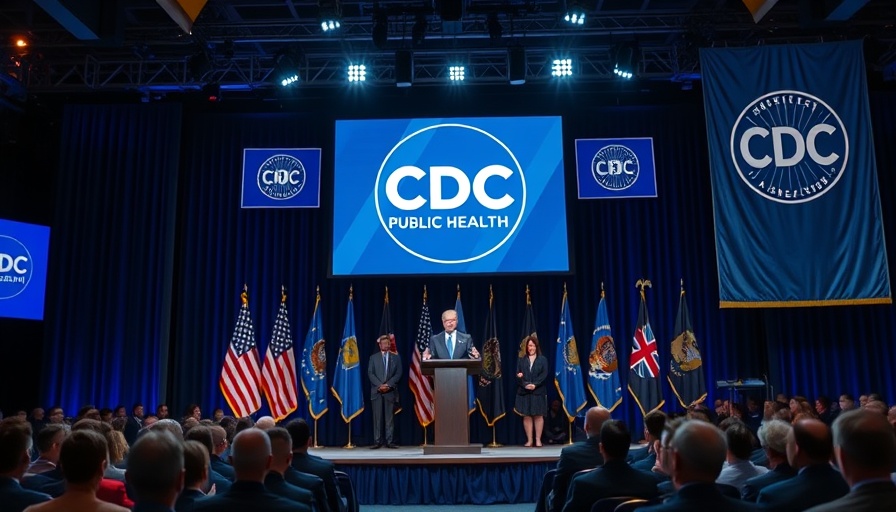
Understanding Hypertension and Its Burden on Communities
Hypertension, commonly known as high blood pressure, is a significant public health concern, affecting millions of adults across the United States. According to the CDC, it is critically important to understand the burden of cardiovascular diseases, which can lead to serious health issues, including heart attacks and strokes. The Atlas of Heart Disease and Stroke serves as a powerful tool for health professionals aiming to manage hypertension more effectively at the community level.
In 'Applied Atlas: Maps to Inform Hypertension Management in Your Community', the presentation dives into the critical role that comprehensive mapping plays in hypertension management strategies, motivating a deeper exploration of its insights.
Utilizing Geographic Data to Drive Change
One of the standout features of the Atlas is its ability to visualize hypertension prevalence geographically. For instance, healthcare professionals can identify areas with the highest burden of hypertension through an analysis of counties and census tracts, effectively pinpointing where interventions are most needed. This data is not just informative; it acts as a catalyst for targeted actions within communities, helping tailor prevention strategies that cater to specific demographics.
Linking Socioeconomic Factors to Health Outcomes
The maps generated by the Atlas showcase the relationship between hypertension prevalence and various social determinants of health, such as poverty and access to healthcare services. For example, it is evident that counties with a high prevalence of hypertension often overlap with areas of lower socioeconomic status. This correlation emphasizes the necessity for healthcare professionals to focus on community resources and interventions that address these underlying issues, ensuring that strategies are as comprehensive and effective as possible.
The Importance of Proximity to Health Services
A critical insight gained from the Atlas involves understanding the accessibility of healthcare facilities. Federally Qualified Health Centers (FQHCs) often serve as vital access points for those in need of blood pressure management and medication. Mapping the locations of these centers in relation to hypertension hotspots reveals significant gaps in healthcare accessibility, particularly in rural areas. Awareness of these gaps can motivate actions from health organizations to either expand existing services or establish new ones.
Tailoring Hypertension Management to Local Needs
Hypertension management is not a one-size-fits-all approach; it requires a thorough understanding of the community’s unique characteristics. By leveraging the demographic data available through the Atlas, healthcare providers can customize programs to effectively address the specific needs of diverse populations. This can include accounting for factors such as age, sex, and racial and ethnic makeup when developing targeted health initiatives.
Conclusion: Empowering Communities Through Data
In conclusion, the Atlas of Heart Disease and Stroke is an invaluable resource for healthcare professionals aiming to enhance hypertension management in their communities. By utilizing geospatial data and understanding the complex interplay between health outcomes and social determinants, professionals can implement effective strategies tailored to community needs. For more detailed instructions on how to utilize the Atlas, visit the CDC's website and empower your community with data-driven insights.
 Add
Add  Add Row
Add Row 




Write A Comment